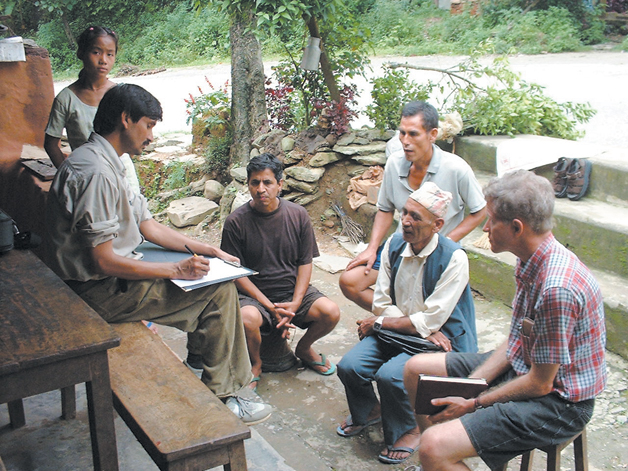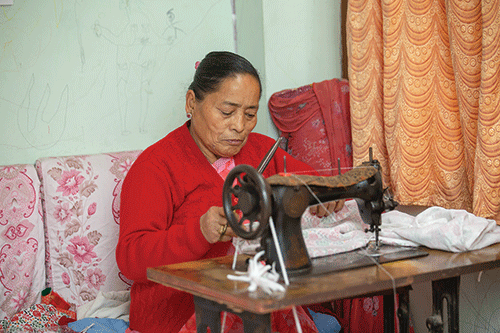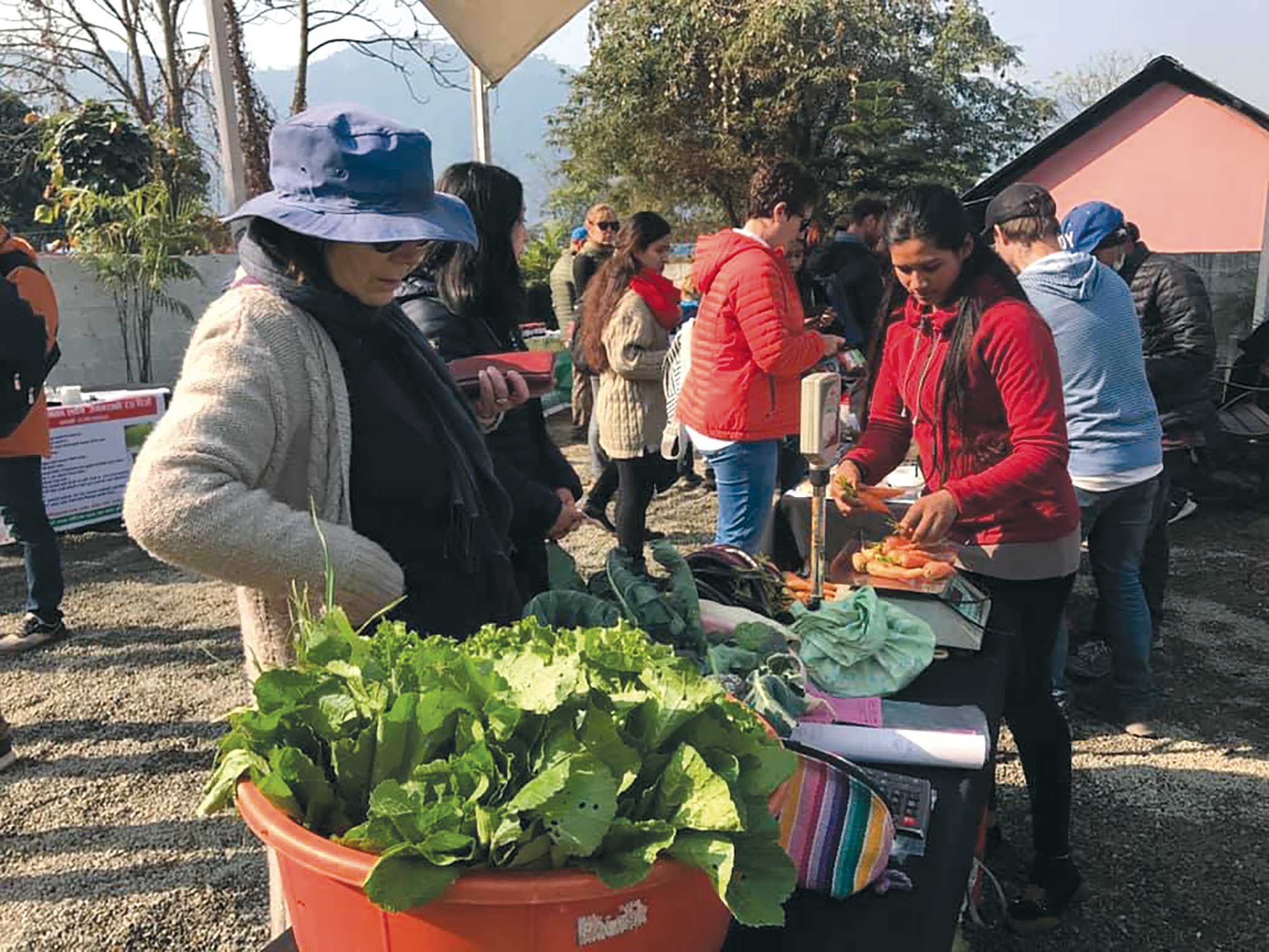The scene is a farming village in Syangja District, late monsoon. Dasain is about ten days away. A group of more than 30 mandarin orange farmers gather around a vehicle that has just made the 2-hour trip from Pokhara. Two men get out of the vehicle and soon are engaged in an intense discussion with the farmers. Within half-an-hour a price-rate-schedule has been agreed and formal signing of the contracts begins. Within two hours contract signing has been finished, the necessary cup of tea has been consumed and the farmers wave the vehicle goodbye—their pockets filled with a 10% crop advance—just in time for the Dasain holiday.

While transactions of this nature would be common in the west, they are a quite-radical way of doing business that mandarin orange farmers in rural Nepal have only recently begun. The transition started in mid 2003 when a local business, Wonder Products of Nepal, Pvt. Ltd., was exploring sources of fruit for starting its new “Rasilo” mandarin orange juice product line. The concept didn’t simply “come out of the blue,” however. Some of Wonder Products employees had had previous dealings with Syangja’s farmers, and from this had developed a relationship of both mutual respect and trust. Nevertheless, according to Wonder Product’s Director of Manufacturing, Dale Nafziger, “There was edginess on both sides, when 15 farmers signed their first contracts in September 2003, for Dec-Jan delivery of mandarin oranges.” When December rolled around, also, things didn’t go off “without a hitch.” It was a learning process for both the farmers and the company.
Proof of ultimate success came next September when 21 farmers signed contracts with Wonder Products. For most-recent Dec 2005-Jan 2006 juice processing, 31 farmers signed contracts—with others symbolically “waiting in line.” What is the reason for this? According to Nafziger, “Farmers were quick to realize the benefit of weighing and selling their fruit on a kg-basis. This gives them a firm reference point upon which to compare their mandarin orange sales from year-to-year. The alternative is that middlemen come in and offer farmers a fixed price for their entire crop. Selling in this way, neither the farmer nor the middleman know precisely the amount they are paying.”
Other farmers in Syangja are rapidly following suit—for obvious advantages. According to Bakundole-based BDS-MaPS, there was one recent case of a farmer being offered NRs. 16,000/- by a middleman for his entire crop. When he refused, the middleman came back with an offer of NRs. 18,000/-which he refused again. By selling his mandarin oranges on a weight basis, alternatively, he was able to earn NRs. 28,000/-. Given results like this, it is easy to see why Syangja’s farmers don’t require much convincing! According to Nafziger, “What we may be seeing here is the infancy of an agricultural-future’s market.” Perhaps that statement is a bit over-optimistic. What remains, however, is the fact that rural mandarin orange farmers are benefiting—and without the middle man. Who knows, perhaps before long potato, tomato and other cash-crop farmers will also be joining the line at the road-side weighing-scales!










